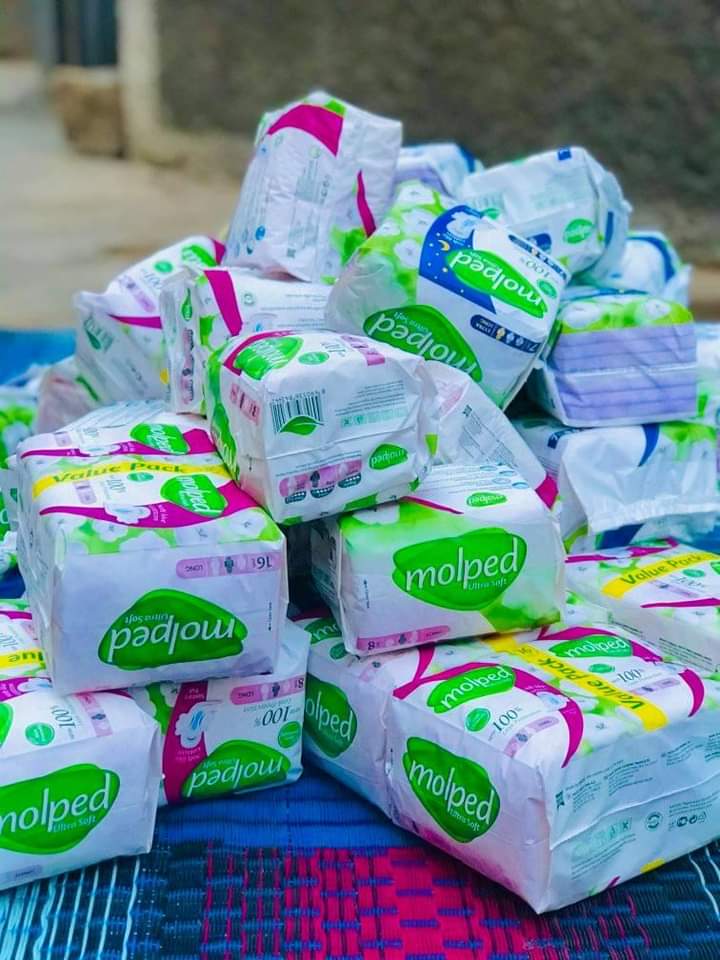Global Issues
Pad: A Gold For Female Teenagers -By Comfort Enoch Istifanus
Deborah Dogo, a student of Biological Sciences, also acknowledged the high cost of food items in the market and explained how the economic situation has forced her to consider rags as the best alternative. She expressed her concerns about these difficulties and urged the government to support female students in need. She emphasized that using pads would require sacrificing some of her food items, which is why she prefers rags, despite their discomfort.

The high cost of living in the country and the increase in school fees have forced female students at the University of Maiduguri to resort to using rags during menstruation instead of pads.
Menstruation is a normal vaginal bleeding that occurs as part of a woman’s monthly cycle. It signifies the release of blood from a girl’s uterus through her vagina, marking her transition into adulthood or nearing the end of puberty.
Menstrual cycles often vary as women get older, with a normal cycle lasting between 24 and 38 days. Consequently, the use of menstrual pads, or simply pads, has become common among female students at the University of Maiduguri. Pads are absorbent items worn by women in their underwear during menstruation, postpartum bleeding, recovery from gynecologic surgery, miscarriages, abortions, or any situation where absorbing vaginal blood flow is necessary.
Due to the effects of the fuel subsidy removal in Nigeria and the rise in school fees, female students find it increasingly difficult to access menstrual pads due to their high cost. To purchase a pack of six pads, one needs at least 500 naira, and even at that price point, the cheaper pads are of lower quality. Consequently, many female students have resorted to using rags as an alternative. These rags are typically less absorbent than pads and can be uncomfortable. They are folded by women into a makeshift pad shape and used to absorb menstrual blood.
One significant problem with using rags is that they can easily slip out at any time, as they lack adhesive to stick to innerwear. This constant fear of potential embarrassment in public leads many women to avoid attending lectures or going out during menstruation, potentially causing academic setbacks.
Another disadvantage of using rags is the risk of bacterial infection. Unlike pads, which are used once and properly disposed of, rags require washing and drying after use, posing a risk of bacterial or disease transmission if not properly managed and cared for. Additionally, rags are not as soft as pads and may cause discomfort and chafing in the private areas of female students.
Abigail Abidan, a student at the University, when interviewed, revealed that the economic downturn forced her to use rags, despite their discomfort and risk. “I never imagined in my life that I would use rags instead of pads. But the increase in school fees left me with no choice. I don’t enjoy it, and my heart skips a beat every time I’m close to my menstrual cycle,” said Abigail.
Wondus Joel, another student of the University, expressed sympathy for a fellow female student from his department whose menstrual rag failed during an exercise in the field, leading to embarrassment. He stated that “if the school could provide assistance, it would bring relief and smiles to many students’ faces.”
Deborah Dogo, a student of Biological Sciences, also acknowledged the high cost of food items in the market and explained how the economic situation has forced her to consider rags as the best alternative. She expressed her concerns about these difficulties and urged the government to support female students in need. She emphasized that using pads would require sacrificing some of her food items, which is why she prefers rags, despite their discomfort.
Shop owners within the University also lamented the high price of pads, even when purchased in wholesale quantities. Their added profit margin makes them even more expensive. They also noted a decline in pad sales due to reduced patronage from students.
Female students are now appealing to the school management and society at large to extend a helping hand, either directly or indirectly, to enhance the comfort of female students during their menstrual cycles.
Comfort Enoch Istifanus is a 300 Level Student of Mass Communication, University of Maiduguri. She can be reached via comfort08100473872@gmail.com or phone number: 08100473872


















